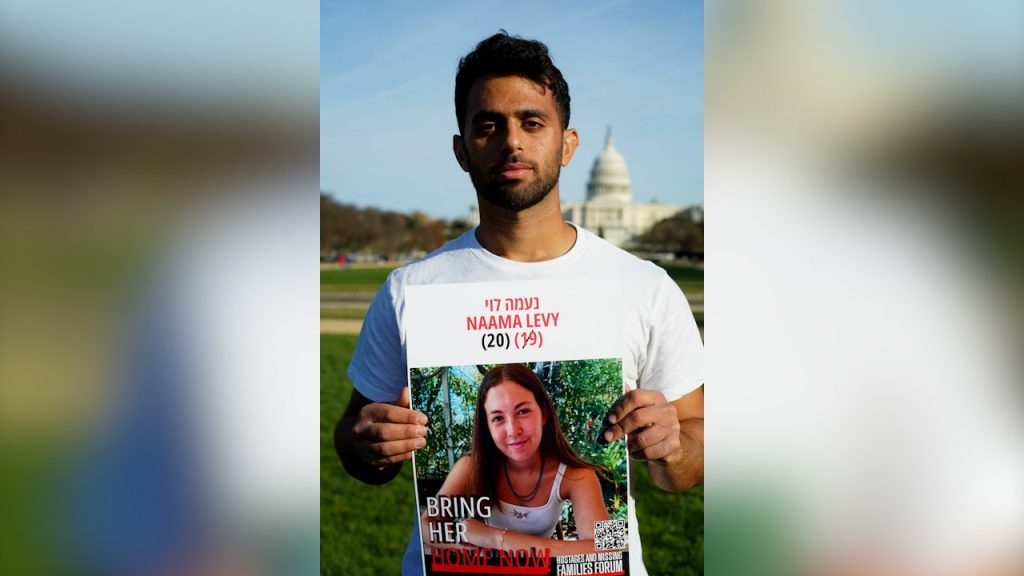Former NFL stars Nick Lowery and Tony Richardson, both Kansas City Chiefs Hall of Famers, embarked on a deeply personal and impactful journey to Israel with Athletes for Israel. The trip, focused on advocating for the release of hostages held by Hamas, transcended the realm of sports and delved into the complexities of human resilience, faith, and the fight against injustice. Lowery, renowned for his placekicking prowess, stressed that his post-football work combating antisemitism, racism, and advocating for hostages like 20-year-old Naama Levy carries far greater significance than any on-field accomplishment. Levy, a surveillance soldier, was captured by Hamas during the October 7, 2023 attack on the Nahal Oz base. Harboring deep empathy for the hostages and their families, Lowery joined the #SportSpeaksUp campaign, using his platform to amplify the voices of those silenced by captivity.
The five-day journey exposed Lowery and Richardson to the raw realities of the Israeli-Palestinian conflict. They visited the poignant Hostage Square in Tel Aviv, where a table set for 200 hostages served as a stark reminder of the human cost of the ongoing conflict. A deeply moving encounter with Levy’s family highlighted her vibrant personality, idealism, and commitment to peace. Her father, Yoni, shared stories of Naama’s infectious laughter and dream of fostering peace, while her brother, Amit, recounted his sister’s dedication to helping others, her participation in peace initiatives, and her unwavering optimism. The family’s enduring hope rested on Naama’s strength and resilience, both physical and mental, gleaned from secondhand accounts of released hostages who’d witnessed her fortitude in captivity.
Beyond the family’s intimate stories, Lowery and Richardson confronted the stark reminders of violence that permeated their travels. Visiting the site of the Nova music festival massacre, where two-thirds of the victims were women, left an indelible mark on Lowery. He described the scene as overwhelming, noting the photographs of vibrant lives tragically cut short. He also visited the soccer field in Majdal Shams, in the Golan Heights, where a Hezbollah rocket attack had claimed the lives of 12 Druze children, highlighting the widespread impact of conflict on innocent lives. The emotional weight of these experiences underscored the urgency of their mission and solidified their commitment to supporting the families of the hostages.
The trip was not without moments of profound spiritual connection. Lowery, a devout Christian, described being re-baptized in the Sea of Galilee and touching the Western Wall as deeply moving experiences, reaffirming his faith and providing a sense of solace amidst the surrounding turmoil. He emphasized the universality of these sacred spaces, recognizing the power they hold for individuals of different faiths seeking connection with the divine. This personal connection infused his work with a deeper sense of purpose. He saw his advocacy not merely as a political endeavor but as a moral imperative rooted in his belief system.
The resilience of the Israeli people in the face of constant threats deeply impressed Lowery. He observed a spirit of defiance, a refusal to allow fear to extinguish their joy. Even in the aftermath of air raids, he witnessed people enjoying life’s simple pleasures, from surfing to sharing cocktails at the beach. This embodiment of strength and the unwavering commitment to life inspired him. Lowery recognized that this spirit mirrored Naama Levy’s own tenacity and her family’s steadfast hope for her return. He felt compelled to honor this strength through his advocacy.
Lowery’s commitment to combating antisemitism is deeply personal, stemming from his grandmother’s experiences documenting atrocities at the Dachau concentration camp. He sees a direct connection between this family history and his current work advocating for Israeli hostages and promoting interfaith understanding between Jews and Christians. This sense of inherited responsibility fuels his dedication to ensuring that such atrocities are never repeated. The trip to Israel solidified his resolve to continue working alongside Eric Rubin, CEO of Project Max, to support the families of the hostages and fight against hatred in all its forms. The bond forged with these families, he asserted, is a lifelong commitment. For Lowery and Richardson, the trip to Israel transcended a simple advocacy mission. It was a profound human experience, a journey of faith, resilience, and the enduring power of hope amidst tragedy.

